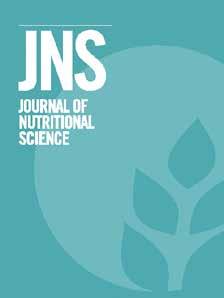
3 minute read
Open Access Journals – Time for Learned Societies to Take Control
Professor Paul Trayhurn, Honorary Publications Officer
Open Access (OA) publishing has expanded dramatically since the concept began to gain traction some 15 years ago. This model for the dissemination of scientific information transfers the cost of publication from the consumer to the producer, with subscription charges being replaced by fees paid by authors. The initial development of OA was to a large extent a response to rapid and unsustainable increases in the prices charged by publishers for academic journals.
There are a number of successful fully OA journals, the best known of which are perhaps PloS One and the Frontiers series. However, traditional journals now increasingly offer the option of OA for individual papers, and in the hybrid model, OA articles appear alongside those that are behind the traditional paywall. Fully OA journals are proliferating at a remarkable rate, the majority of which are produced by obscure commercial publishers. Many will be familiar with the daily deluge of email requests to submit an article to a new OA journal. These solicitations are often written in poor English (despite bearing a UK or US address) and frequently the journal is far from one’s interests and expertise; nevertheless, the email begins with a statement of how much a recent article by the recipient was appreciated. The request for an article regularly suggests a deadline of a few days with expedited publication.
During one week in July, I counted the number of requests that I received from such journals and they totalled 43. In some cases, an invitation to join the Editorial Board accompanies the request for a manuscript, with an offer to reduce the publication fee for Board members. Junior scientists in particular should be aware of these practices and not be deceived by a flattering invitation
– publications in, and Editorial Board membership of, dubious journals will compromise, or may seriously damage, an individual’s reputation.
These type of journals have been termed ‘predatory’ and, until very recently, Jeffrey Beall of the University of Colorado-Denver maintained an extensive blacklist of such journals. Among the dangers of predatory journals is that they undermine the concept of OA publishing – indeed, they may undermine the credibility of the scientific enterprise as a whole. A number of new OA journals, of course, have impeccable credentials, being published under the auspices of the Royal Society in the case of Open Biology, for example.
The Nutrition Society established its own OA journal – the Journal of Nutritional Science – in 2012. The aim was both to acknowledge the move towards OA and to provide a transfer route for the publication of articles submitted to the British Journal of Nutrition (BJN) which while scientifically sound did not quite meet the quality threshold for our flagship journal. This was at a time when the BJN was under considerable pressure in the face of a rapid increase in the number of submissions. JNS, while still receiving articles transferred from the BJN (as well as from Public Health Nutrition and Nutrition Research Reviews ) now obtains most of its content through direct submissions.

The model that JNS offers has recently been mirrored by the American Society for Nutrition with publication from January 2017 of its OA journal – Current Developments in Nutrition. OA journals established, owned, and run by Learned Societies is something of a return to the origins of scientific publishing. The majority of long-established, disciplinebased journals were set up by Learned Societies, including the BJN, the Journal of Physiology and the Biochemical
Journal - as well as the world’s earliest and longest running scientific journal, the Royal Society’s Philosophical Transactions
Academic journals owned and run by commercial publishers are a relatively recent development, and it is argued that Learned Societies should exercise their moral authority and reclaim the guardianship of publishing (1). Indeed, back in 1957 David Martin of the Royal Society stated that “Scientific Societies should be the guardians of the quality of scientific publication of original work in learned journals” (1). Given the development of OA and of predatory journals, this is especially apposite - and with JNS, taking guardianship is exactly what the Society is doing.
Note: In October 2017 Professor Paul Trayhurn took over as Editor-in-Chief of JNS from Professor Graham Burdge; the Society is most grateful to Professor Burdge for his excellent work on the journal.
(1). Fyfe A. (2017). Take back peer review. Times Higher Education, 25 May, p 32.



